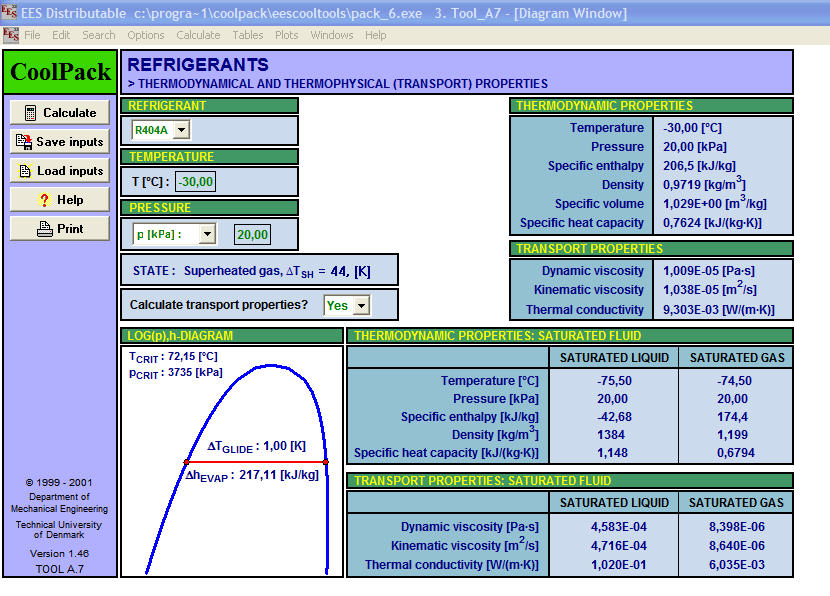Results 1 to 3 of 3
-
03-06-2008, 02:59 AM #1
 converting refrigerant volume to mass
converting refrigerant volume to mass
I'm looking for a formula to convert the volume of refrigerant to the mass of the refrigerant. I realize that the density of the refrigerant varies with the temperature. Is there a formula that will give the mass if I can provide the following inputs: volume, density & temperature. How does this vary by the refrigerant? Are there any papers/publications that discuss this topic.
Is it a simple algebraic equation like I've listed below.
Mass = (volume transfered) x (density of refrigerant) x (temp correction factor)
or is it more complex?
I would like to do this for a few popular refrigerants including R22, R-134a, and R404a.
-
03-06-2008, 10:48 AM #2
- Join Date
- Sep 2007
- Location
- Split Croatia
- Age
- 57
- Posts
- 6,151
- Blog Entries
- 6
- Rep Power
- 36
-
06-06-2008, 02:06 PM #3
Re: converting refrigerant volume to mass
Your best source of info will be the refrigerant tables for for any given refrigerant. They list the properties at saturation temperatures so that you can find the density at any given saturation temperature.
Or,
You can use programs to do the same thing.
Or,
You can simply use the inverse of the volume known refrigerant volume to find the density; 1/Volume = Density & 1/density = Volume
If you are trying to calculate the refrigerant charge of a system then you have to do more calculations to find the total mass of refrigerant.If all else fails, ask for help.
Similar Threads
-
Superheat and Subcooling
By Chunk in forum FundamentalsReplies: 42Last Post: 15-01-2011, 01:24 AM -
Leak Testing?
By Thana in forum Trouble ShootingReplies: 36Last Post: 31-08-2010, 02:57 PM -
fun quiz
By Brian23 in forum New to REReplies: 6Last Post: 02-10-2007, 10:18 PM -
Refrigerant volume
By Nirmalya in forum Technical DiscussionsReplies: 2Last Post: 03-10-2006, 01:24 AM







